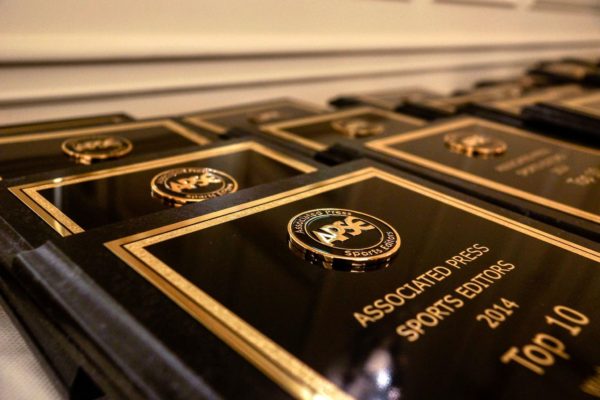As sports media have expanded, so have university sports journalism curriculums.
A 2007 Penn State University study reported that more than 40 percent of 384 university journalism and mass communication programs offer at least one sports media-related course. Overall, more than 200 sports media courses were being offered among 155 universities.
The study also reported that the course offerings range from basic reporting and writing to sports media in society classes. While university sports journalism programs are becoming more prevalent, what is being taught in those courses is another matter altogether. Perhaps the larger issue is what are the skills that should be taught in sports journalism classes.
A study conducted in summer 2008 attempted to provide some answers. During the APSE convention in June and through an e-mail survey, 108 sports editors provided their views. The two-page survey asked sports editors what skills they thought were important to becoming a good sports journalist, what college courses were most beneficial, and what skills were lacking among young sport writers.
The respondents in this study averaged 44 years old, had been a sports editor for about nine years, and had been a working journalist for 22 years. About 75 percent of the sports editors had a college degree and all who responded had at least some college training.
On a five-point scale, 78 percent of sports editors answered "four" or "five" to the statement "A college education is important to becoming a good journalists" (average score of 4.05). Sports editors also said internships were important to becoming a good journalist (4.95 average), but about one-third did not agree that universities did a good job of preparing sports journalists to work in newsrooms (2.93).
When asked to check the five most important skills for a sports journalist, sports editors overwhelming checked "accuracy" (96.3 percent). Other skills included reporting (85.2 percent), writing (75.9), interviewing (64.8) and sourcing (63.9). Grammar received about 25 percent of the vote, and only 2.8 percent said "blogging."
In rating the importance of university classes, sports editors were asked to grade (A to F) which courses were most beneficial to their journalism education. About two-thirds of the sports editors graded newswriting and reporting an "A" or "B," and 63 percent gave As and Bs to social science courses such as history, economics, psychology and sociology. Communication theory classes received the lowest grade, with about 45 percent answering D or F.
"College newspaper experience" received an "A" about 57 percent of the time and had a grade point average of 3.06 (on a 4.0 scale). It was the only college course or experience that had a GPA above 3.0 (social science = 2.72; writing/reporting = 2.66).
Asked what strengths graduating journalists possessed coming out of college, only 34 sports editors offered a response with "enthusiasm" listed most often. "Technologically savvy" and "versatility" were among the top comments. As for weaknesses, 96 of the 108 sports editors weighed in, most often saying "good writing" and "grammar" skills were lacking. Providing accuracy of information and time management issues were also high on the list of complaints.
Although this was a small sample, the survey provides some insight as to what sports editors would like to see from college graduates. Universities are recognizing the importance of sports media training. Making the most of that training would seem imperative.
Scott Reinardy is an assistant professor at the University of Kansas. He was a sports writer and editor for nearly 15 years before completing his Ph.D. at the University of Missouri. Reinardy recently co-authored a sports writing book, The Essentials of Sports Reporting and Writing.
SECTION I
1-5 scale (strongly disagree-strongly agree) Mean
1. A college education is important to becoming a good journalist 4.05
2. The main components of journalism cannot be learned in school or college 3.01
3. An internship is important to becoming a good sports journalist 4.95
4. Working as a news reporter/editor is important to becoming a good sports journalist 3.61
5. Universities do a good job of preparing sports journalists to work in my newsroom 2.93
6. Those working in sports receive the same respect as those working in news 2.56
(n = 108)
SECTION II
Skills
Check the five most important skills for sports journalists:
1. Accuracy 96.3%
2. Reporting 85.2%
3. Writing 75.9%
4. Interviewing 64.8%
5. Sourcing 63.9%
6. Work quickly 49.1%
7. Grammar 28.7%
8. Self editing 14.8%
9. Blogging 2.8%
SECTION III
Course grading
5-point scale (A=4; F=0) GPA
News writing and reporting course(s) 2.66
Creative writing course(s) 2.32
Media law course(s) 2.27
Social science courses (such as history, economics, psychology, sociology, political science, geography) 2.72
Communication theory course(s) 1.66
Off-campus experience in internships 2.44
Media or journalism ethics class 2.53
College newspaper experience 3.06
Journalism courses in general 2.53
Non-journalism courses in general 2.69
(A = excellent; F = failing)





